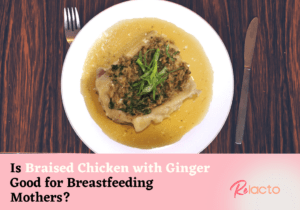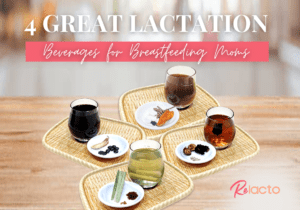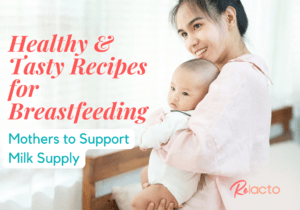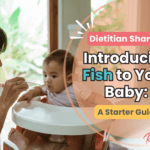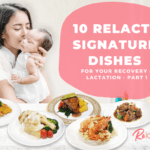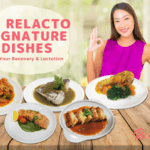The Role of Shellfish In Your Breastfeeding Diet
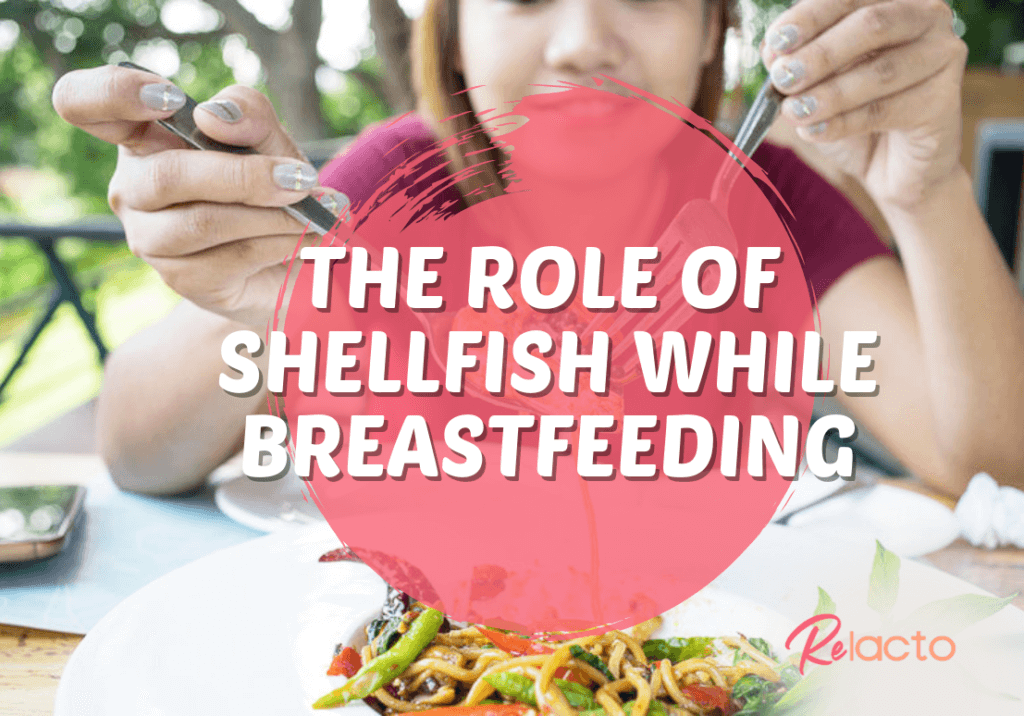
Many mummies may wonder what is the difference between having fish compared to shellfish. They would also be concerned about the mercury content of shellfish as well. Additionally, they have been told by their friends and family that shellfish should be avoided during confinement as it is perceived to have poisonous properties which would affect a mother’s recovery from childbirth.
All in all, advice given to mummies comes from the best of intentions by the people around her. We can all agree that no matter how much we have progressed as a society in Singapore, traditional confinement dietary practices which are heavily rooted in Traditional Chinese Medicine principles do play an integral part in a mother’s recovery after childbirth. It is rooted in our culture.
Simultaneously, Western medicine has progressed and is beginning to understand more and more about how maternal diet during postpartum affects her child. Therefore, considering both perspectives from Traditional Chinese medicine and Western medicine perspective would be the best strategy for our mummies in our community in this day and age.
As ReLacto’s lactation meal menu is a menu designed for mothers after confinement and restrictions to such foods are no longer a concern, shellfish are introduced frequently in this 28 days menu. This means introduction to seafood via breast milk starts right after the confinement period. This is still in line with the national recommendation in order to reduce the risk of developing food allergies in children.
Reducing Risk of Food Allergies
In general, there are eight official main food allergies:
- Wheat
- Soy
- Nut
- Peanut
- Fish
- Shellfish
- Dairy
- Eggs
College of Paediatric and Child Health Singapore, Academy of Medicine Singapore as well as College of Obstetricians & Gynaecology Singapore recommend mummies who are pregnant or/and breastfeeding to have a balanced diet of wide variety which includes all eight of the main food allergies especially in at-risk infants unless mothers are allergic to those foods herself. Definition of infants at risk of developing food allergies are infants with at least one parent or a sibling who has a food allergy.
Allergens from shellfish seem to be a different protein structure compared to the allergens from fish. Therefore it’s important to create exposure to these different allergens to the baby even since pregnancy. Allergens from maternal diet transfer via umbilical cord or breast milk are in smaller amounts and therefore more well tolerated. This helps the immune system to recognize these allergens as safe, lowering the risk of an allergic reaction during weaning after 6 months old.
Source of Omega 3-DHA
Besides that, shellfish like prawns, clams, squid and such are high in Omega 3-DHA. Omega 3-DHA is important for both mummies and babies. For the baby, Omega 3-DHA is known to support brain development and cognitive function. A small study even found that mummies who had adequate fish and seafood intake which is about three times a week, had less fussy babies and their babies seem to be in a better mood compared to mummies who ate fish once or less in a week. Evidence is not strong but definitely another good reason for mummies to have fish and seafood adequately!
For the mum, adequate Omega 3-DHA intake has been linked to a lower risk of postpartum depression and anxiety. This is very important especially since postpartum depression and anxiety is increasingly more common these days. More and more studies are showing how nutrition plays a part in mental well-being. Not only does colourful foods from fruits and vegetables on the plate look more appetizing to eat, a diet filled with fruits, vegetables, whole grains and adequate fish intake creates healthier gut health which is linked with the brain.
Source of Iodine
Another convincing reason to have your seafood and fish adequately is because of the content of Iodine it provides in your diet. Iodine plays a role in your thyroid hormone regulation. During the early days, iodine actually plays a part in cognitive function in your baby too! Iodine deficiency in children can cause physical and cognitive disorders as well as hypothyroidism. Hypothyroidism would affect the child’s growth rate as well.
Enjoy Delicious Seafood Dishes & More with ReLacto
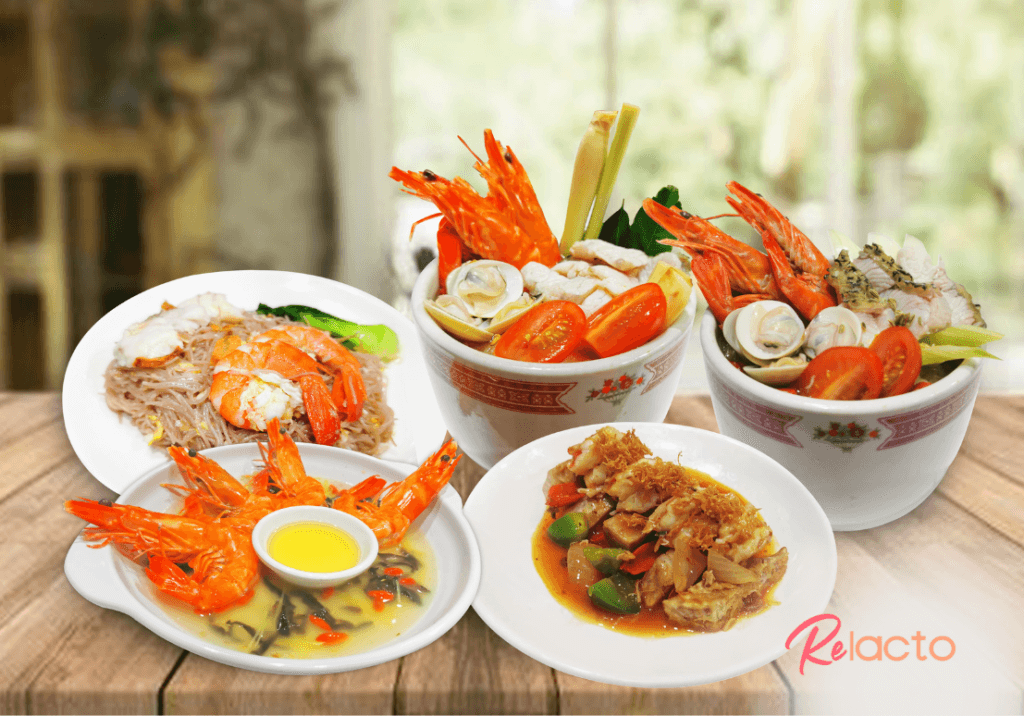
At ReLacto Singapore, we serve a variety of delicious food increase breast milk with seafood that are low in mercury, such as XO Prawns with Yam, Steam Prawn with Garlic Vermicelli and Broccoli, Lemongrass Seafood Soup, Fennel Seafood Soup, Ginger and Yellow Wine Prawn, Seafood Ee-fu Noodle and many more. We serve fish and seafood as much as two to three times a week!
Fennel Seafood Soup contains food increase breast milk as they contain fennel which is a known galactagogue. Many of the other seafood dishes that we have contain food boost breast milk supply like fenugreek, ginger and garlic. They are incorporated in many creative ways with some of your Chinese cuisines and fusion cuisines.
Have a look at our menu, designed with the same purpose as a lactation diet chart that was planned by our award-winning chef and our very own in-house dietitian. We strive to not only provide you with a wide variety, but we also want to provide you nutritionally well too during your breastfeeding journey.

